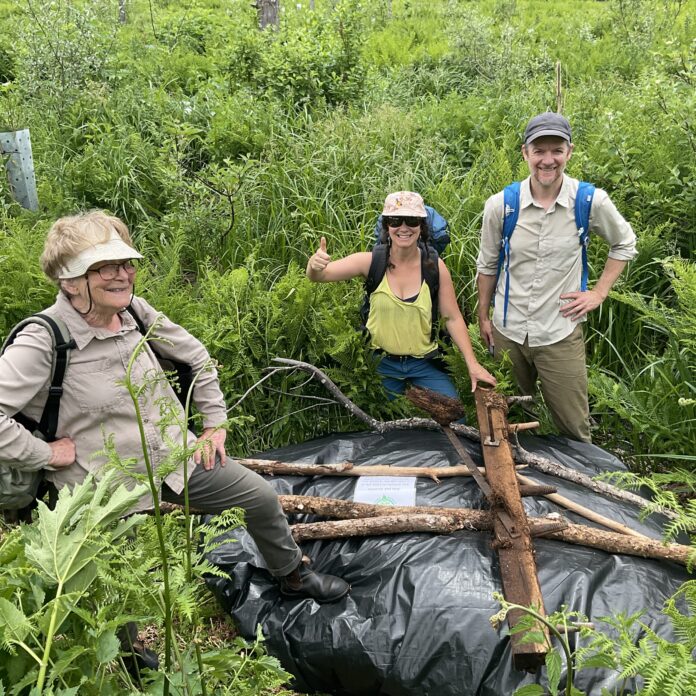The Central Kootenay Invasive Species Society is celebrating the conclusion of its second year of restoration work in local wetlands.
Central Kootenay Invasive Species Society (CKISS) officials said the Communities Protect Freshwater Together: Riparian Restoration in the Kootenay Region Eco Action Project just finished its second of three years.
The project is meant to help restore critical water bodies and adjacent riparian habitats in three different sites, with a focus on engaging and inspiring the community to protect local water quality.
“From the Jubilee Wetland in Rossland to the Hunter Siding Wetland near New Denver and the Harrop Wetland, CKISS’s dedicated teams have left a lasting impact on these crucial ecosystems,” said CKISS officials.
Year two started in the spring with pulling of invasive plants and replanting with students and volunteers.
“Two classes from Rossland Summit School (RSS) collaborated with CKISS in identifying and removing invasive plants at the Jubilee Wetland. Activities included pulling Canada thistle (Cirsium arvense) and solarization of creeping buttercup,” said CKISS.
Meanwhile, some volunteers were active in the Hunter Siding Wetland.
“A small team of volunteers played a crucial role in removing a substantial amount of bull thistle (Cirsium vulgare), contributing to the survival and success of native plants,” said CKISS. “Special thanks to the Slocan Lake Stewardship Society for their collaboration on this site.”
Elsewhere, CKISS was joined by grade 5, 6, and 7 students of Redfish Elementary School for work at the Harrop Wetland.
“Here they helped plant native alder, dogwood, and cedar. By doing so they are enhancing wetland habitat, benefiting at-risk species such as the western toad, painted turtle, blue heron, and more,” said CKISS officials. “In addition, they spent some time learning about invasive species and removing Canada thistle.”
In October, KISS’s Education Team led native planting and maintenance days at the same three sites.
“Two classes from RSS once again joined CKISS but this time it was to participate in native planting. At Hunter Siding Wetland, volunteers from the community played a crucial role in ongoing restoration efforts,” said CKISS officials. “They planted locally sourced red osier dogwood and mountain alder and removed tree protectors from trees that were planted in 2022 and are now thriving. The crew continued invasive plant removal efforts. At the Harrop Wetland, a class from J.L. Crowe High School assisted CKISS and FOKLS with more native planting.”
CKISS officials said wetlands play an important role in maintaining environmental balance.
“They serve as a powerful carbon sink and are natural filters, enhancing water quality by trapping pollutants and promoting purification,” said CKISS. “Additionally, wetlands act as a buffer against flooding, mitigating the impacts of extreme weather events. Wetlands also provide recreational opportunities and support diverse wildlife, serving as vital habitats for birds and fish that sustain predator populations.”
CKISS is looking forward to work and volunteer opportunities to come in 2024.




